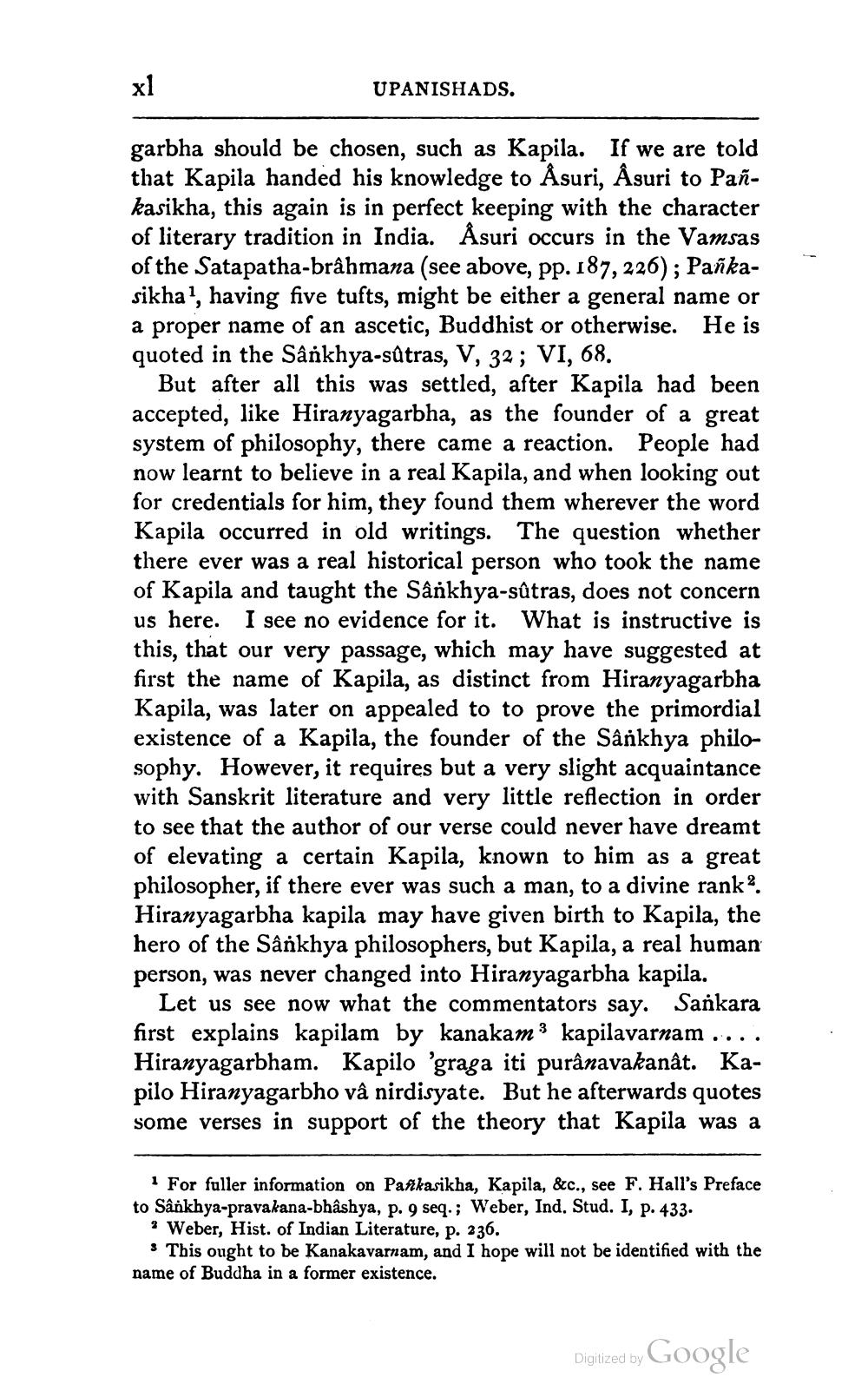________________
UPANISHADS.
garbha should be chosen, such as Kapila. If we are told that Kapila handed his knowledge to Åsuri, Asuri to Pankasikha, this again is in perfect keeping with the character of literary tradition in India. Åsuri occurs in the Vamsas of the Satapatha-brâhmana (see above, pp. 187, 226); Pankasikha', having five tufts, might be either a general name or a proper name of an ascetic, Buddhist or otherwise. He is quoted in the Sankhya-sútras, V, 32; VI, 68.
But after all this was settled, after Kapila had been accepted, like Hiranyagarbha, as the founder of a great system of philosophy, there came a reaction. People had now learnt to believe in a real Kapila, and when looking out for credentials for him, they found them wherever the word Kapila occurred in old writings. The question whether there ever was a real historical person who took the name of Kapila and taught the Sânkhya-sútras, does not concern us here. I see no evidence for it. What is instructive is this, that our very passage, which may have suggested at first the name of Kapila, as distinct from Hiranyagarbha Kapila, was later on appealed to to prove the primordial existence of a Kapila, the founder of the Sânkhya philosophy. However, it requires but a very slight acquaintance with Sanskrit literature and very little reflection in order to see that the author of our verse could never have dreamt of elevating a certain Kapila, known to him as a great philosopher, if there ever was such a man, to a divine ranka. Hiranyagarbha kapila may have given birth to Kapila, the hero of the Sânkhya philosophers, but Kapila, a real human person, was never changed into Hiranyagarbha kapila.
Let us see now what the commentators say. Sankara first explains kapilam by kanakamkapilavarnam .... Hiranyagarbham. Kapilo 'graga iti purânavakanât. Kapilo Hiranyagarbho vâ nirdisyate. But he afterwards quotes some verses in support of the theory that Kapila was a
1 For fuller information on Pankasikha, Kapila, &c., see F. Hall's Preface to Sânkhya-pravakana-bhâshya, p. 9 seq.; Weber, Ind. Stud. I, p. 433. ? Weber, Hist. of Indian Literature, p. 236.
This ought to be Kanakavarnam, and I hope will not be identified with the name of Buddha in a former existence.
Digitized by Google




